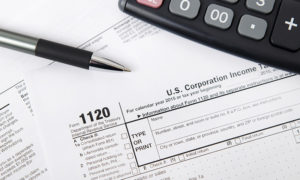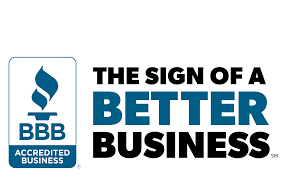Rookie HOA board members are more prone to making mistakes, but that does not mean veteran board members are perfect. One of the best ways to become a good leader in your community is to know the most common HOA board member mistakes.
Avoid These HOA Board Member Mistakes at All Costs
To err is human, there is no denying it. But, some mistakes can be more detrimental to the HOA community than others. Whether you are a new or long-serving board member, it is imperative to equip yourself with knowledge of the most common HOA board mistakes.
1. Failing to Read and Follow Your Governing Documents
As a board member, you must know your governing documents like the back of your hand. These documents tell you what you can and can’t do as well as outline the proper procedures for every action you will take. But, you’d be surprised to find out that many board members still overlook this important step.
It doesn’t stop with reading your governing documents either. You must follow and enforce them to the letter. A common violation board members make is failing to abide by its meeting rules. Board meetings are usually made up of two parts — the open session and the executive session. In most states, homeowners have a legal right to attend open sessions, but many boards fail to even invite them.
In other cases, board members hold meetings “informally” without notifying homeowners. Conducting association business at these supposedly informal meetings can land both the HOA and the board in legal trouble. Not only that but the validity of the decisions and actions you take during these unofficial meetings can be challenged.
2. Working Outside of the Board and Your Authority
The board works as a unit, and no single board member should work outside of the board or its authority. As such, you should never hold meetings with vendors or residents without other board members. Even if your intentions are pure, the board may perceive this as you trying to work behind their back.
Furthermore, you should never work outside the authority granted to you by the governing documents. If the governing documents don’t allow an action, then you shouldn’t take it. For instance, if homeowners are complaining about speeding cars on public roads, there isn’t much you can do because the roads don’t belong to the association. In this case, it’s best to work with local authorities.
3. Allowing Conflicts of Interest
It’s often tempting to hire a friend or relative as an official vendor. You might see it as a win-win situation because your friend gets a new client and the HOA can save money on the deal. But, this is a classic example of an HOA board of directors conflict of interest. And, if you know anything about how an HOA works, conflicts of interest are never good.
4. Not Knowing How to Delegate
 As a board member, it’s only natural to want to do as much as you can for the community. But, you will quickly find that trying to shoulder all the work will only lead to poor results and burnout. This is why you must know how to delegate.
As a board member, it’s only natural to want to do as much as you can for the community. But, you will quickly find that trying to shoulder all the work will only lead to poor results and burnout. This is why you must know how to delegate.
Consider forming committees to handle various tasks within the association. An Architectural Review Committee, for instance, can oversee architectural requests, make recommendations, and ensure compliance with architectural guidelines. A Budget Committee can help you create the annual budget. You can even form special committees that serve a single purpose and disband after their tasks are completed.
5. Going Against the Board
You will not always find yourself on the same page as everybody else on your board. And it’s only normal to have healthy disagreements when discussing certain topics. But, if the board has made a decision that you disagree with, respect the decision and show your support. Don’t try to work against the board because that will only sow seeds of discord. Worse yet, it will signal to homeowners that the board is incapable of working together.
6. Failing to Budget Properly
Perhaps one of the worst HOA board member mistakes you can commit is failing to budget properly. In many ways, the annual budget guides the association’s finances. But, when your budget consists of many inaccurate projections, it can have a significant impact on the HOA’s financial health.
Make sure to budget for both the short-term and long-term expenses of the community. Don’t forget to factor in reserve fund contributions, too. This way, the HOA will not be grappling with funding when the time comes for major repairs and replacements.
You may also feel tempted to keep dues low in an effort to win favor among homeowners. But, remember that low dues aren’t always a sign of a successful community. You can certainly try to save money for the association, but you should never do so in a way that compromises the quality of the community.
7. Allowing Late Dues to Pile Up
Homeowners don’t always pay their dues on time, but it’s up to the board to make sure to collect them. Member dues are, after all, the association’s primary source of income. Without dues, the association’s funding will dry up and the community will suffer for it.
As a board member, you must collect dues in a timely manner. You can encourage homeowners to pay on time by making the process convenient for them. They can mail in their checks or pay their dues online with the help of HOA software.
Applying consequences can also work. If homeowners stop paying their dues, you can impose late fines, suspend their access to amenities, and even take them to court. In some cases, you can even attach a lien to their property and subsequently initiate foreclosure proceedings.
8. Failing to Record and Review HOA Finances
Homeowners associations are no stranger to fraud. The best way to combat this is to record your financial transactions in an accurate and consistent manner as well as review your finances on a regular basis. Of course, this means you need a working knowledge of accounting and bookkeeping. But, you can always seek help from an accountant. It’s also worth having said accountant conduct an audit of your association’s finances.
9. Failing to Update Insurance
Failing to review and update the association’s insurance policies is one of the most careless HOA board member mistakes you can make. Insurance protects the HOA from liability and potential damages. If you lack sufficient coverage, you may very well end up shouldering the insurmountable costs. It could even lead to special assessments, which is never a popular decision.
Make sure to check your insurance policies on an annual basis. Verify the renewal and lapse dates, coverage amounts, and the process for making claims. Talk to your insurance provider if you need help understanding the terms.
10. Committing Fraud or Embezzlement
 There is perhaps no greater mistake that an HOA board member can make than fraud. Theft, fraud, and embezzlement are all criminal acts and are punishable by law. Unfortunately, more and more HOAs are falling victim to these activities. But, you can prevent or identify fraud by staying on top of your financials and remaining transparent at all times.
There is perhaps no greater mistake that an HOA board member can make than fraud. Theft, fraud, and embezzlement are all criminal acts and are punishable by law. Unfortunately, more and more HOAs are falling victim to these activities. But, you can prevent or identify fraud by staying on top of your financials and remaining transparent at all times.
11. Failing to Communicate
Communication is paramount when it comes to being a board member. When you fail to communicate with your fellow board members and residents, it can create all sorts of misunderstandings.
Make sure to use the communication channels permitted by your governing documents. For many associations, this includes certified mail, email, phone calls, and newsletters. Some HOAs may also use websites to disseminate information such as policy changes, updates, and events.
12. Not Asking for Homeowner Input
Homeowners have a right to express their concerns about community issues. Far too many boards work with closed ears because they believe they know what homeowners want. But, there’s no way of actually knowing what they want if you don’t ask for their input.
Consider conducting surveys to understand how homeowners feel. You must also allow time for an open forum during open-session board meetings when residents can voice their opinions. This might make the meeting longer than necessary, though, so it’s best to give each resident a fixed time limit. Two to three minutes per homeowner is usually enough.
Of course, don’t just ask for homeowner feedback to facilitate the perception of an accommodating board. You should also actively listen to their concerns and try to address each one the best way you can.
13. Not Learning from Past Mistakes
As a board member, you must learn from the mistakes of those who served before you. A great way to understand what mistakes past boards made is to review previous meeting minutes. You might foolishly propose a new rule only to later find out that the same proposal received poor reactions from homeowners two years prior.
14. Failing to Document Everything
Proper documentation is an effective tool against all sorts of association problems. When you document everything, you have something to use as a reference in case of future disagreements or disputes. You can also prevent fraud and embezzlement by documenting all expenses using receipts. Remember that even the slightest hint or impression of misconduct can affect the board and the community as a whole.
15. Amending Policies Without Proper Review
A common reason many homeowners join the board is that they want to change the policies. But, changing policies without understanding the reason behind them is one of the greatest HOA board member mistakes you can make.
Before amending the rules, make sure to find out why they exist in the first place. You should also ask yourself whether the community will benefit from the changes you want to make. Remember that board membership isn’t an opportunity for you to amend the rules in a way that serves your personal interests. You must always put the community first.
16. Enforcing Policies Inconsistently
As a board member, you should always enforce policies in a consistent and fair manner. Just because someone is your friend doesn’t mean they can get away with a violation with just a slap on the wrist. In the same way, don’t be extra harsh with a homeowner you dislike. Never let personal feelings get in the way of your duties.
Keep in mind that there are consequences to an HOA not enforcing rules equally. If you employ selective or erratic enforcement, you may find yourself in legal trouble.
17. Forgetting to File Tax Returns
 In the eyes of the government, HOAs are non-profit corporations that must file federal tax returns. Associations usually use either Form 1120 or Form 1120-H for this. When you don’t file these returns, you can lose your status as a non-profit and face monetary penalties.
In the eyes of the government, HOAs are non-profit corporations that must file federal tax returns. Associations usually use either Form 1120 or Form 1120-H for this. When you don’t file these returns, you can lose your status as a non-profit and face monetary penalties.
Self-managed HOAs have a tendency to forget to file legal documents, but you can avoid making this mistake by including it in your annual checklist or having a professional do it for you.
18. Failing to File Secretary of State Documents
Another mistake board members make in terms of legal documents is failing to file annual reports with the Secretary of State. Remember that the association may face dissolution if you forget to file this report. In turn, you might end up with legal and financial troubles.
If you do forget this important step, though, make sure to contact the office of the Secretary of State immediately. Then, file the necessary forms and settle any penalties that may apply.
19. Choosing Vendors Improperly or Too Quickly
Many board members want to immediately change vendors once they assume office. But, this is another common mistake. Any changes you propose or make should go through a thorough process. Think about how the change will affect the association. If you fire a vendor mid-project, for instance, it could impact the project itself.
Furthermore, you must follow the proper procedures when terminating an existing contract with a vendor and hiring a new one. Remember to screen candidates thoroughly and stay away from potential conflicts of interest.
20. Failing to Ask for Professional Help
Although self-management may work for you now, you will eventually find yourself requiring professional help. That could be in the form of an accountant, an HOA attorney, an engineer, or an HOA management company.
An accountant can help you keep track of your finances, conduct reserve studies, and perform audits. You should also make sure to consult your HOA attorney in all matters, especially when it comes to legal decisions. Many HOA management companies, though, offer both financial and legal assistance as part of their full-service packages.
As a board member, you should never be afraid to ask for help. After all, you can’t do it all alone.
Knowledge Is Power
It’s human nature to make mistakes, but that doesn’t mean you should treat them lightly. As a board member, you must understand that your mistakes could put the entire community at risk. If you want to avoid the biggest HOA board member mistakes, though, you must first know what they are.






